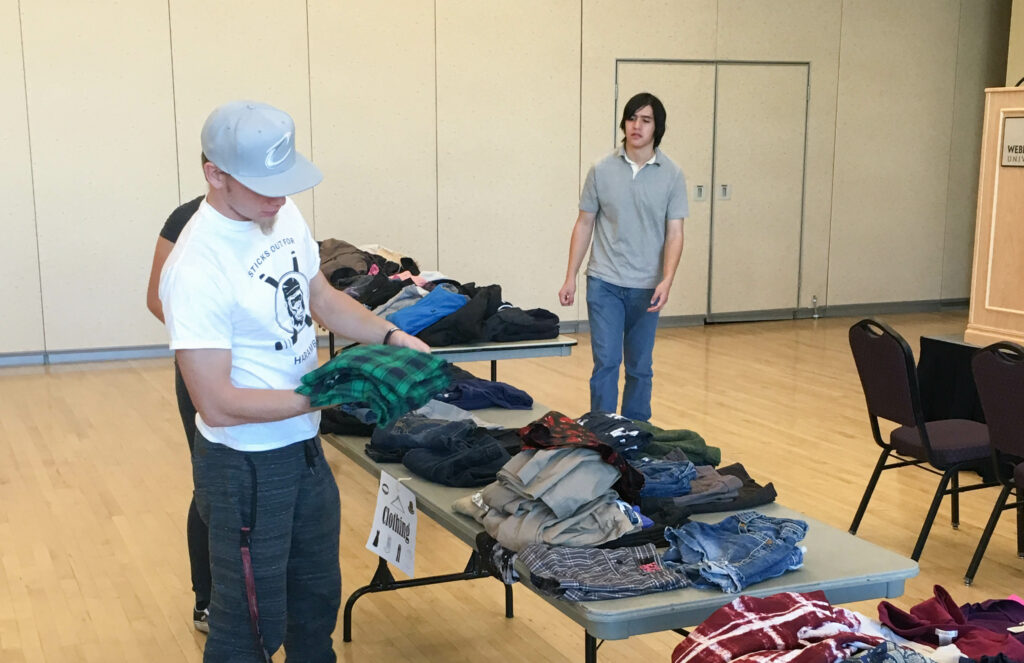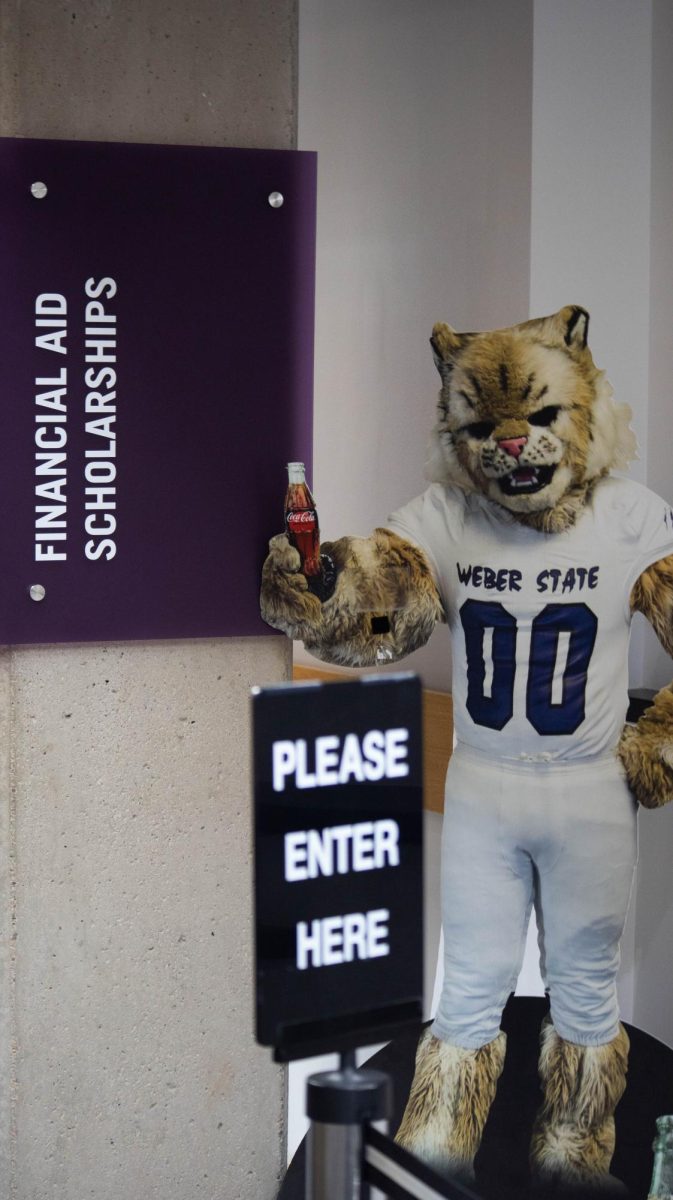
The spirit of sharing and gratitude touched down at Weber State during the Environmental Ambassadors’ Holiday Free Swap from Nov. 14–16.
The goal of the swap meet was to raise awareness of sustainability while giving the WSU community a chance to give away unneeded items from their homes.
Beverly Brewer, the president of Environmental Ambassadors, organized the event.
“We want to raise awareness on the issue of waste in our community,” Brewer said.
Students and faculty were invited to donate practically any unneeded items from their homes including clothes and shoes, electronics, toys, books, furniture, movies, kitchenware, and food.
These items were then displayed on tables in Ballroom C in the Shepherd Union for students and faculty to take what they wanted.
The left over items will be donated to a local Savers thrift store. As part of a company program, Savers will pay the Environmental Ambassadors for the items donated.
All the money from Savers, along with all the food donated from the event, will go to support the Weber Cares Food Pantry.
Kyia Hill, the president of WSU First Generation club, invited members of the club to help at the event.
“The pantry is for students and that’s important—the entire event is aimed at helping Weber State,” Hill said.
Carol Galindo was one of the participants who donated food to the pantry. Afterward, she stayed and picked up some donated clothes for family members.
“I think this is cute and helpful. They should do this more often,” Galindo said.
In an effort to help reach more student, the Environmental Ambassadors teamed up with the WSU First Generation club.
“This is like a mega service project. It gets people to be sustainable and also give students an opportunity to get things they might need,” Hill said.
Hill and Brewer both said that the purpose of the event was twofold: to help the WSU community and to help sustain the environment.
“We want to show people that it’s okay to reuse items,” Brewer said.
Brewer continued to explain that many in the community are deterred from purchasing used items because they may not be clean. “While that can be accurate, most used items are clean and useful,” she said.
Clothes were the most donated items during the event, and Brewer is grateful for that.
“Our landfills have tremendous impacts. Textiles make up 8 percent of our landfills,” Brewer said.
But space in landfills isn’t the only negative impact of not reusing clothes.
According to a sign displayed at the event, every pound of clothes in the drop-off bin saves about 3.6 pounds of carbon dioxide and 725 gallons of water that would have been used in manufacturing new clothes.
“The environment is our home,” Brewer said. “We share these public spaces — like air and water. We are all responsible — this is something we all have to manage.”
Brewer said that reusing clothes and supporting thrift shops that sell used clothes are useful ways students and faculty can help protect the environment.
“How we interact with the planet can be damaging, but we have the ability to choose to take individual action to minimize the harm,” Brewer said.



















